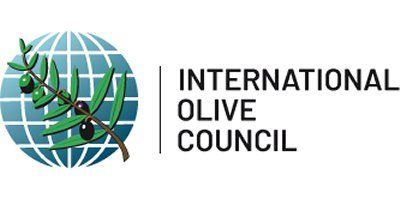

- Home
- Companies
- International Olive Council (IOC)
- News
- IOC Mission To Slovenia
IOC Mission To Slovenia
The IOC’s Olive Growing, Olive Oil and Environment Unit travelled to Slovenia from 14 to 17 February at the request of the European Union and following an invitation of the country’s Institute for Oliveculture (IZO), headed by Maja Podgornik. The visit was centred around the organisation of a workshop on fertilisation and cryptogamic diseases of the olive tree. The IOC delegation also had the opportunity to visit the Slovenian olive growing sector, conduct technical visits, participate in sector related workshops and meet with several high-level representatives, including the Slovenian Minister for Agriculture, Forestry and Food.
Among the highlights of the mission was the meeting with the Slovenian Minister for Agriculture, Forestry and Food, H.E. Ms. Mateja Calušic and other ministerial representatives, including Maša Žagar, Director General for Agriculture; Gašper Kosec, Head of the Sustainable Agriculture Sector; Prof. Rado Pišot, Director of the Science and Research Centre Koper (ZRS Koper); Maja Podgornik, Head of the Oliveculture Institute; and Tanja Polak Benkic, responsible for olive cultivation (14 February). The Slovenian delegation provided a presentation of the state of olive cultivation in the country, with emphasis on the high costs related to olive oil production. In its turn, IOC representatives presented the Organisation’s many activities and welcomed Slovenia’s participation in them, particularly focusing on the importance of olive tree genetic resources and the possibility of transferring healthy, authentic olive genetic material at the request of Slovenian institutions to expand the country’s olive collections. Importance was also given to the IOC’s work on the olive orchard’s carbon balance, which requires the support of all IOC member countries with a view to determining the role that olive growing can play in carbon sequestration.
The IOC’s experts also visited the Slovenian Institute for Oliveculture and IOC-recognised sensory and physico-chemical analysis laboratories, headed by Milena Bucar-Miklavcic. The discussions with experts were centred mainly around the Slovenian olive varieties listed in the IOC’s World Catalogue of Olive Varieties, and the possibility of supplying Slovenian collections with genetic resources available under the THOC project.
The delegation conducted technical visits to some of the country’s olive oil mills and visited the Municipality of Koper, an olive-growing region, where they were greeted by Mateja Hravtin Kozlovic, Vice-Mayor, and other representatives of the municipality (February 15 – 16).
Finally, the mission culminated with the IOC’s participation in a workshop on fertilization and cryptogamic diseases of the olive tree, jointly organised by the IOC and IZO and animated by the experts Juan Moral and Prof. Ran Erel (February 16 – 17).
